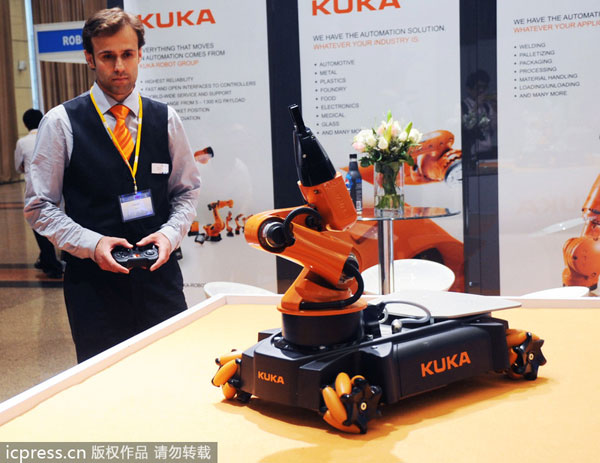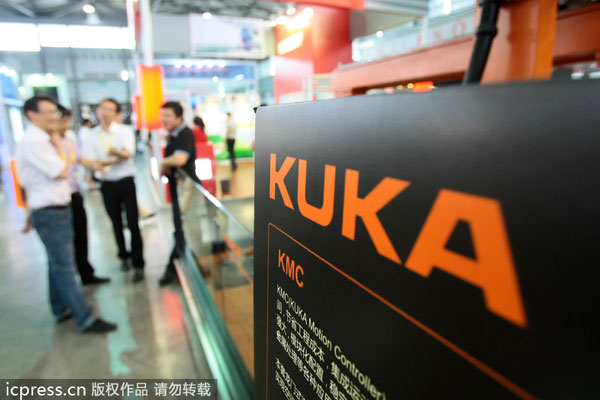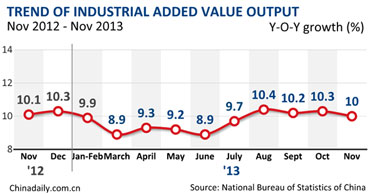

Industrial robot maker Kuka opened a new factory in Shanghai on Tuesday and announced multi-million euro orders for industrial robots from China's automotive industry.
|
 |
|
A staff from German industrial robots producer KUKA remote-controls a robot during the 2011 IEEE International Conference on Robotics and Automation (ICRA 2011) in this file photo taken in Shanghai, China. [Photo/icpress] |
Kuka is banking on growth in China to bolster demand for its robots, offsetting a slow recovery of manufacturing activity in its European home market.
Auto production in China, the world's top automaker, is likely to hit 20 million vehicles this year and 35 million vehicles by 2020.
Kuka has won orders for a total of 1,375 robots from the Chinese automotive industry, it said. A Chinese carmaker whom Kuka did not name ordered 1,125 robots worth a double-digit million euro sum for welding and gluing, among other uses.
In addition, Beijing Automotive Foton Motor Co Ltd placed a single-digit million euro order for 250 robots for automotive production.
"I do not see market saturation there. Cars are an extreme status symbol in China," Chief Executive Till Reuter told German daily Handelsblatt in an interview published on Tuesday.
In addition, he said he expects Chinese manufacturers to rely more on industrial robots in the future than they do now, shrinking a gap with German peers that have bought as many as 5,000 robots for their Chinese car factories.
|
 |
|
Visitors gather around the KUKA booth at the China (Shanghai) International Robot Show 2012. [Photo/icpress] |
Kuka generates annual revenue of 150 million euros ($206 million) from the sale of robots in China, or a fifth of its overall robotics sales.
It aims to more than double that figure to 600 million euros in the next three to five years and boost its market share in China from currently close to 20 percent, Reuter said.
With the new plant, Kuka will have a production capacity of 3,000 robots per year in Shanghai but it said it could grow that figure to 5,000 in the coming years to supply more robots to general industry as well as the automotive sector.
The company's rivals in the market for robots for car manufacturing include Switzerland's ABB and Fanuc and Yaskawa Electric in Japan.
 China's industrial production growth softens in Nov
China's industrial production growth softens in Nov